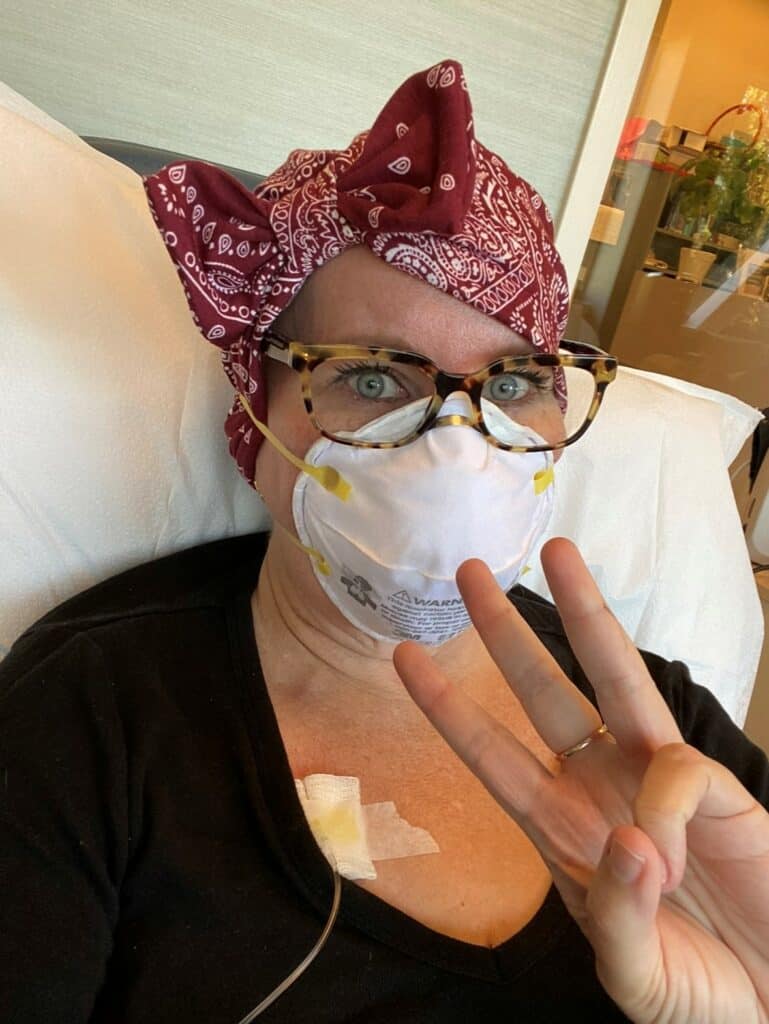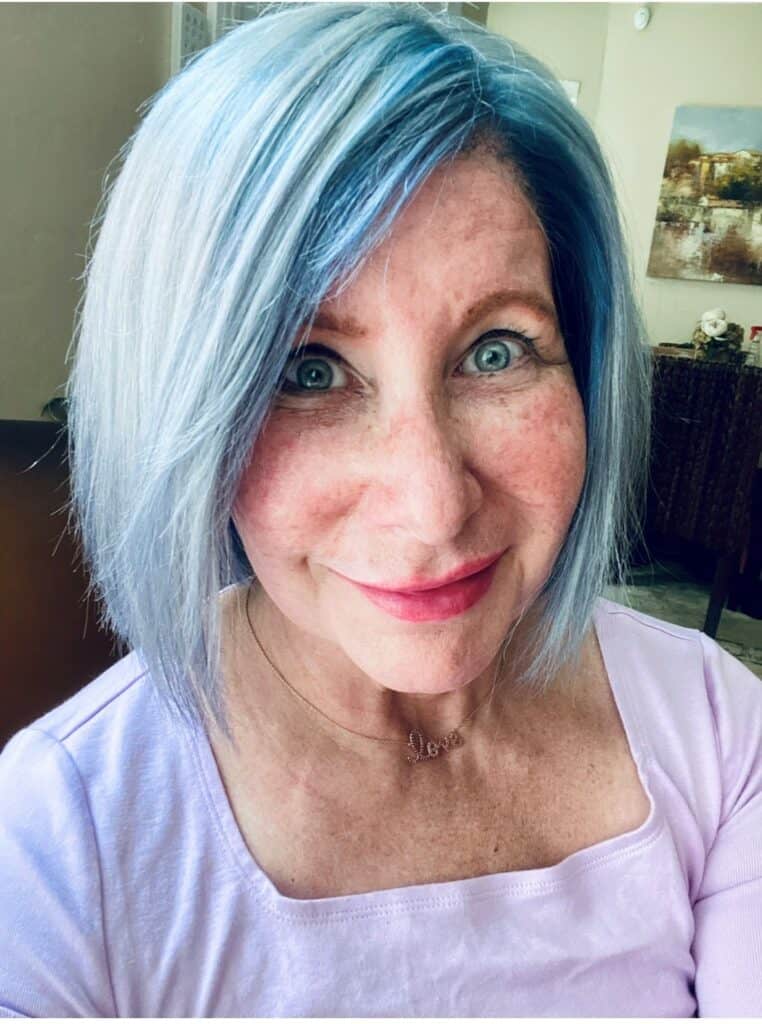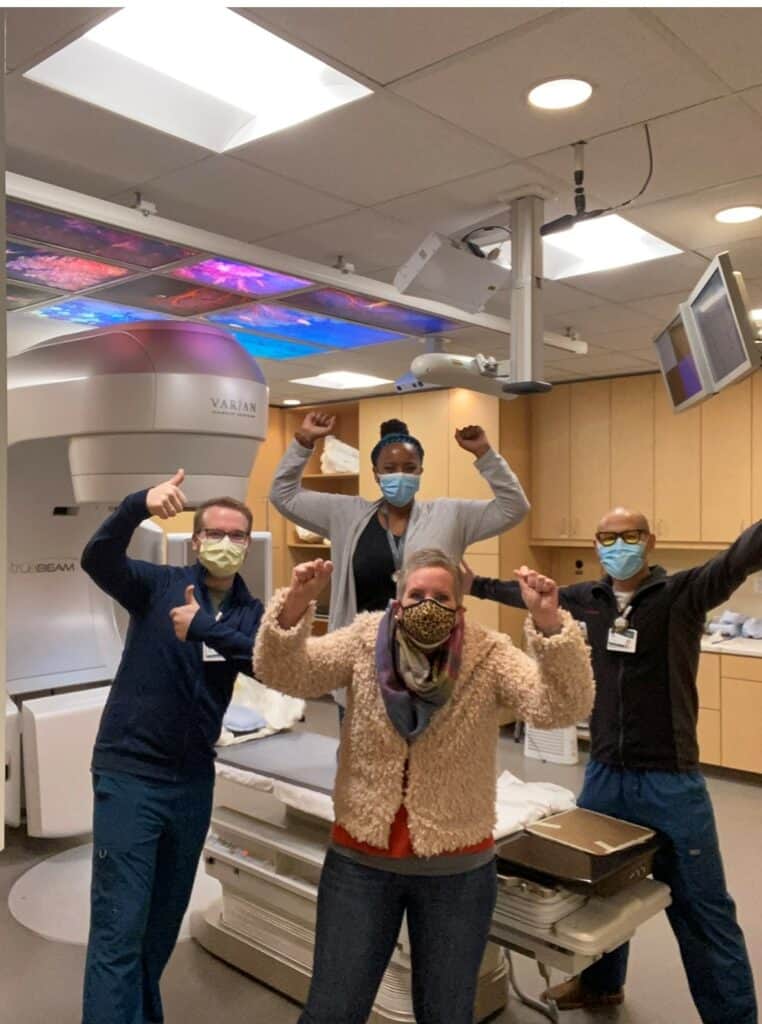
In March 2020, just as the world was beginning to shut down due to the COVID-19 pandemic, Melissa Oakes found a lump in her right breast. After spending hours frantically on the phone, she was able to get in for a diagnostic mammogram, followed by an ultrasound. “It took a long time to find someone to talk with me, and I knew something was very wrong,” she said. “By the time I walked out, I had a cancer binder in my hands and the nurse told me I needed a double mastectomy,” Melissa said. The following day she had a biopsy. To say it was stunning is an understatement.
The biopsy confirmed Melissa had stage 2 invasive ductal carcinoma. There were two masses in her right breast, one in her left breast, all three biologically different and all estrogen receptor-positive. A unique case in a unique moment in the world. “Immediately I became a cancer patient, and it became a flurry of medical appointments,” she said. Three weeks after finding the lump, Melissa began chemotherapy, which lasted four-and-a-half months. Two weeks after finishing chemotherapy, she had a double mastectomy. Follow-up tests after her surgery showed micro clusters around her lymph nodes, so she also had radiation therapy.
“It was a frightening time, but I knew it was important to speak up for myself, to not be pushed around and remain scared out of my mind,” Melissa said. “It’s important for women to advocate for themselves, to understand what’s going on, to ask questions.”


With the world in the throes of the pandemic, Melissa spent a great deal of her treatment and recovery time isolated. There were days when she had to use every ounce of strength she had to just get out of bed, make herself go downstairs and get something to eat. “Nothing was normal. Everything was out of whack,” she said. “I leaned on my friends and my medical team to help keep me sane. I am naturally a strong person, but it was just terrifying.” She couldn’t even hug her mother due to COVID concerns. The people surrounding her found ways to keep her socialized, engaged, and reminded her she was important.
Melissa found peer support through her local cancer center. Her patient navigator was able to connect her to others going through similar experiences. “It’s so important to have people you can talk to, who understand what you’re going through. Find a peer to connect with, ask for support, ask for resources of women who have gone through this,” she said. “Having peer support made all the difference for me. I was able to see the light at the end of the tunnel and that hope allowed me a positive attitude. One in eight women get breast cancer, and there was no reason for me to have it other than I drew the short straw.”
Prior to her diagnosis, Melissa did not really know much about cancer in general. “It’s so much more common than I realized,” she said. “We need to normalize going through cancer treatment, for the sake of the patient and the sake of those supporting the patient. There’s trauma associated with the experience, and there’s also survivorship and strength. And when you know other people going through these experiences, it normalizes it.”
Something Melissa found surprising throughout her treatment was how often what she expected to happen swayed. “It’s a journey. I was shocked I needed radiation. I thought it was going to be chemotherapy and surgery, but then radiation was added. I had to change plastic surgeons at the last minute because of insurance. I had to have two additional surgeries,” she said. “These things weren’t part of the initial plan. But plans change. I wanted to control, but I had to let go of that. It truly is a journey. I want anyone going through cancer treatment to know however they feel at any given moment, it’s okay. Feelings are such a big part of the experience, and it’s important to recognize and hold space for them”
Three years after her breast cancer diagnosis, Melissa finds purpose in helping others advocate for their health. “Get your yearly mammogram. It doesn’t hurt,” she said. “Prior to my diagnosis, there was literally no warning and nothing to indicate I was at risk. There was no indication something was wrong until I found the lump. Ask questions, get the answers you need. Take your health seriously and find people you can lean on.”
Learn more about how breast cancer screening and early detection play an important role in your health. Screening tests can help detect breast cancer at an early stage when the chances of survival are highest. Whether you’re ready to get your first screening mammogram or want to know more about follow-up tests after an abnormal finding, learning about breast cancer screening tests and the importance of early breast cancer detection can help you take charge of your health.
Statements and opinions expressed are that of the individual and do not express the views or opinions of Susan G. Komen. This information is being provided for educational purposes only and is not to be construed as medical advice. Persons with breast cancer should consult their healthcare provider with specific questions or concerns about their treatment.



